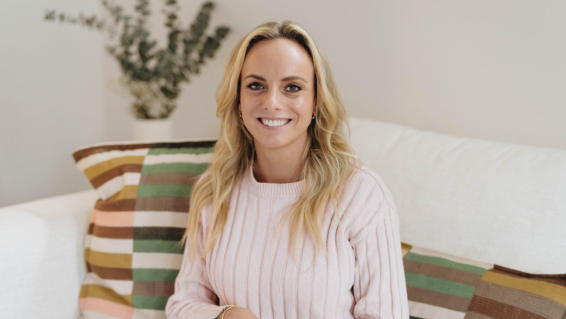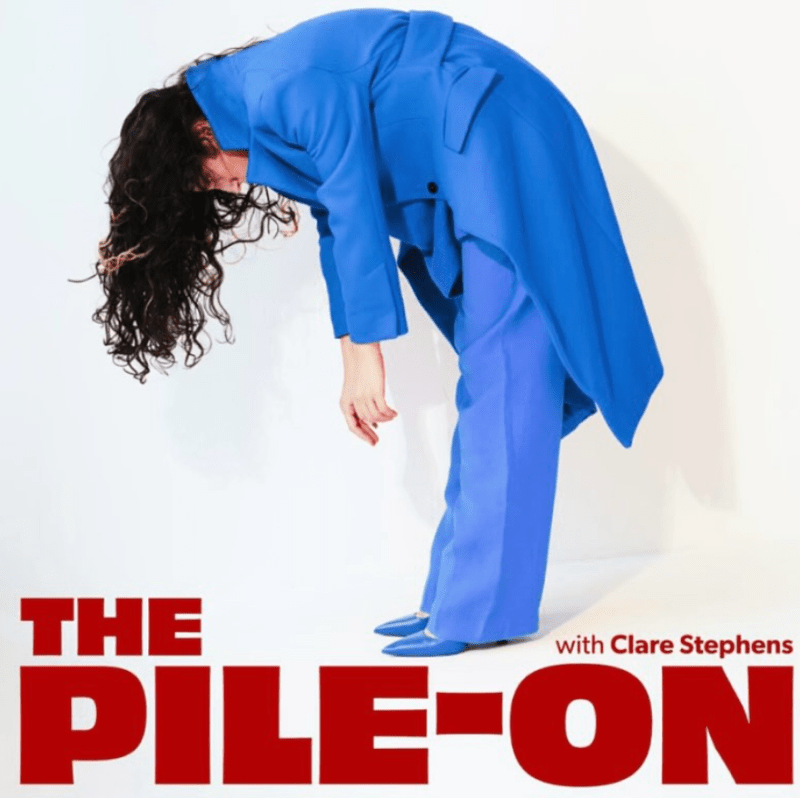
‘We turn people into avatars’: The human toll of social media pile-ons

Clare Stephens is the host of a new weekly podcast, The Pile-On
As the former editor-in-chief of Mamamia, Clare Stephens has witnessed first-hand the cruel nature of internet pile-ons when an angry crowd doesn’t agree with an online opinion.
While researching her debut novel over the past few years, she spoke to numerous high-profile people who have weathered the storm of online outrage. She was stunned by the callous nature of it — and the lasting scars to the humans who are targeted and then discarded when the news cycle moves along.
This led to the development of The Pile-On, a weekly podcast series launching today on Acast, that examines the human fall-out when the collective rage of an internet community concentrates on an unsuspecting individual.
Stephens is careful to note that when curating guests for the podcast, she steered away from shock jocks or people who purposefully stoke the flames of fury for clicks. “Some people, what they do is critique and call out, and then they get that call-out energy back,” she tells Mumbrella. Her podcast is about those who share opinions or write articles, and then become symbolic of an entire issue.
As with a lot of social ills, this phenomenon can be traced to how we conduct ourselves on social media.
“I think the online world just has us completely dehumanising each other,” Stephens tells Mumbrella.
“I think content creators are dehumanising other content creators. I think the people in the comments, the people who are reading and watching, the journalists who are writing the stories, I think we’ve all just dehumanised each other – because of the medium of social media, where we’re getting tiny snippets of people.
“We turn people into avatars. We’ve lost all nuance now and we’ve all turned into a symbol for something.”
Stephens notes this targeting happens disproportionately to young women, which isn’t to say that men don’t also feel the full brunt of the outrage machine. “I think we forget quicker”, she says of male victims of internet pile-ons.
“I think it happens more to women, and I think that when it happens to women, it’s more intense. And, I think the reason it seems to have higher consequences for women is because we are just socialised to expect a certain moral standard and a certain altruism from women that we don’t necessarily from men.
“So, we expect if a woman is doing anything public — if she’s a business owner or a journalist or an influencer — that she is gonna speak up about really complex issues, that she’s gonna say exactly the right thing at every moment.
“Because of that, it’s often those people that you see getting attacked. The consequences are greater because it’s really important for women to be likable. In terms of building a career, it’s important for them to be likable. So, they have further to fall when it does happen.”
Stephens notes an even greater worry.
“I also think that what happens is that when somebody has been piled on — when they’ve had the experience of being dehumanised, of being totally isolated and alienated from a community that they felt like they were part of — I think it radicalises them. I think it pushes them further in an extreme direction because they feel rejected.
“And that’s also a phenomenon that I think is worth discussing — particularly at the moment — that when we don’t allow any grace for people to learn or grow or change, then we’re just pushing people further to the extremes and getting more and more divided.”
Stephens hopes The Pile-On can provide a salve to this – or at least stop some would-be attackers in their tracks.
“The idea of the podcast is just to get people to think about how we interact online, why we’re so angry and what we’re actually angry at, and whether it’s productive to be angry at individuals when we’re probably angry at really, really big issues. There are productive things we can be doing to tackle those issues that aren’t calling somebody very cruel names.”
This misplaced anger is particularly dangerous when focused on a human target.
“We conflate that person with an ideology or a social problem or something we don’t agree with, and we forget any other aspect of who they might be and what they might be going through and all of their vulnerabilities,” Stephens notes.
“There’s a lot of political issues where you see somebody’s face and you go, ‘That person is symbolic of the right wing. That person is symbolic of the left wing’ – and that’s just not how human beings work. We’re more complicated than that.”
When humans are reduced to one idea, that soon becomes their entire public persona. As Stephens points out, this mounts an emotional toll that can completely destroy someone. She found this time after time in her interviews and her research into the subject.
“The thing that’s particularly scary to them in the moment of being at the centre of internet controversy, is that the narrative is you are irredeemable. There is nowhere to go from here. You are just this kind of person and we want you to shut up and go away, and there’s no room for you to change or listen or gain a deep perspective.
“It’s this idea of being irredeemable, that I think is really, really dangerous.”
The Pile-On is out today though Acast. Stephens’ debut novel, The Worst Thing I’ve Ever Done, is out Tuesday October 30.



